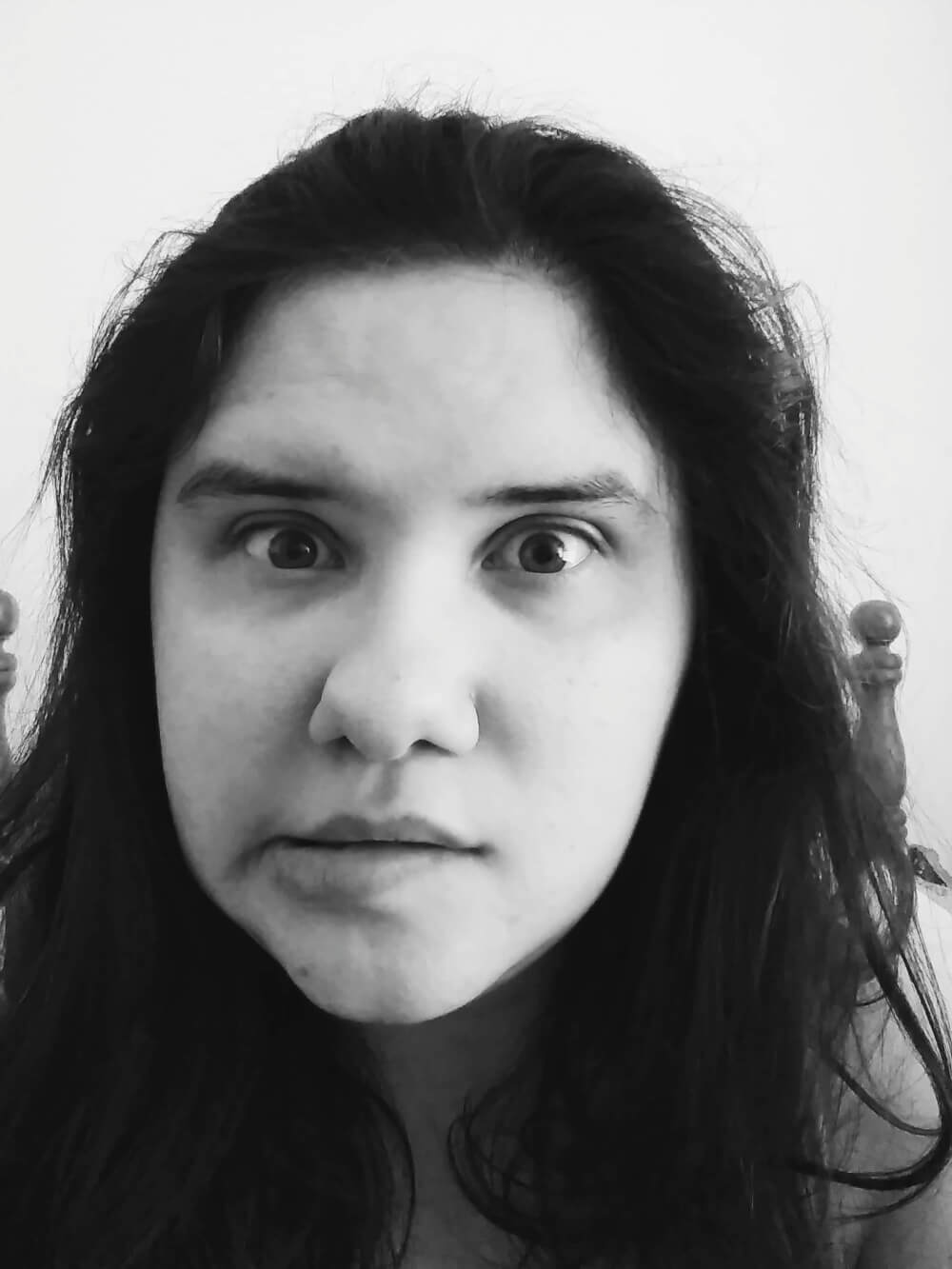Once again, neurodivergence is mostly ignored in a conversation about what makes someone a “real” anything — in this case, a real vs. fake reader, as inspired by a teacher’s list of what makes a reader real versus what makes them fake.
Context: A teacher sent an 11-year-old home with a chart, and Tweetarians got mad.
Tag urself if you're a "fake" reader/writer…this was apparently given to an 11yo? Silly ableist infographic, bookdom is for everyone, and I literally can't ever sit still everrrrrrrr so 💃🏻 pic.twitter.com/b9uh3T1uhd
— Alder (Ash) Van Otterloo 🍉 (@AAVanOtterloo) January 28, 2022
I didn’t want to do a deep dive, but then an article I perceived as satire was not supposed to be taken as satire? Or it was. But it’s not. It’s not satire.
And therein lies the main issue: I would, by the apparently accepted definition, be perceived as a “fake reader” — because I lack executive functioning skills, which play a large part in reading comprehension; because my lived experience does not match that of non-autistic people, courtesy of double empathy; because the way people comprehend story is through their own life experience. Sure, you expand your vocabulary so you can understand and articulate better, but you ultimately perceive story via your own perception of life. That’s how the brain works.
You can’t force a neurotype to behave in a way that it simply does not. You can condition the person’s brain to behave that way for a short time period, but that’s called masking. In autism, masking always leads to an inevitable autism burnout, which is a burnout exclusive to autism and nothing like non-autistic burnout. It’s not fun.
Teacher’s fake vs. real readers chart
Fake Readers…
- Finishes a books or finishes too quickly.
- Turns the pages quickly.
- Constantly loses their place or has to reread too often.
- Abandons books often.
- Leaves room during silent reading time.
- Constantly fidgets or looks around the room.
- Disturbs others.
- Rarely has a book to read. “Forgets” book.
- Pretends to be a knowledgeable reader.
- Unable to discuss book at length.
Real Readers…
- Choose “just right” books.
- Read in one spot.
- Remain silent.
- Focus on their book.
- Keep a steady pace.
- Use Metacognition.
- Check for understanding.
- Visualize.
- Make and revise predictions.
- Ask questions.
- Put themselves in their character’s shoes.
- Stay on task.
- Reflect on the story.
- Try their best.
My autistic and dissociative identity disorder (DID) traits turn me into what people would perceive as a “fake” reader.
I say this because of the list, but more because of an article that confirms it.

A list of my autistic and DID traits/symptoms relating to reading:
- can’t read aloud
- can’t always pronounce read words well
- cannot explain story I read
- cannot discuss, in detail, story I read
- fidgeting (stims)
- moving to different places while reading
- “forgets” book
- has to reread sentences, paragraphs, pages, even whole chapters
- constantly losing place
- abandons books often
- does not visualize written story
- impaired metacognition
- doesn’t read every word
- used SparkNotes for class book discussions
These things don’t make me a “fake” reader, though — they just point out ableism and ignorance in other people.
Metacognition, which is the awareness and understanding of one’s thought process, is commonly impaired among autistic people. Similarly, processing information mentally is a completely different process from expressing it verbally.
When you, a presumably non-autistic person, engage in verbal communication, you process what is said completely — that is, it’s one-and-done. They said it, you got it, and so you respond.
Sometimes it takes me a whole five minutes to process what someone said.
I know how to create a blog, manage hosting, and set up a lot of things. I can write 4000+ words on that shit, sans verbosity, for other people to read and learn how to DIY themselves. What I cannot do is articulate it to someone verbally and coherently. This doesn’t mean I don’t actually know about or understand it. Rather, my brain doesn’t function in a way that allows me to. I can’t function in that manner like non-autistic people might be able to.
Reading comprehension relies heavily upon theory of mind, central coherence and executive functioning — all of which autistic people are known to struggle with. Most characters are non-autistic, and if you’re unaware of double empathy studies, you’ll think autistic readers’ problem is solely on their reading comprehension skills — but it’s not, because it’s a great example of the double empathy problem: non-autistic people struggle to empathize with autistic people and vice versa, because they have different perceived life experiences.
So much of the non-autistic life experience feels extremely fake to me. Non-autistic people don’t even realize they’re in a social game, dependent on hierarchy and social constructs. They engage in insincere small talk and are offended when people don’t do it, because that’s what you’re supposed to do, and ultimately do not comprehend why it is insincere. It’s their default. They do it because they do it; it’s not personal that they don’t actually want to know how you are. It’s a pointless courtesy, a social construct as part of the social game.
That’s how non-autistic people tend to comprehend the life of autistic people and everything they take for granted. They cannot fathom that life, because their perceived life experience is all they know. Their brains function differently.
Double empathy studies are really interesting, and you should definitely check them out even if you’re not following my explanation.
The education system doesn’t cater well to neurodivergent, and even traumatized, students.

Despite having a different neurotype, the education system seeks to condition their brain so they do have reading comprehension, even though autistic people struggle with theory of mind, central coherence, and executive functioning. Thus, the autistic student hiding in plain sight is taught to mask their autistic differences, whether they’re aware it’s their autism or not.
Few characters are autistic, hence the double empathy problem. Non-autistic people struggle to empathize with autistic people and vice versa, because the perceived life experience of each neurotype is so different due to the way their brain functions.
The idea of a “fake reader” as an educational tool serves as an excellent example of ableism in the education system, namely that varying experiences across neurotypes are viewed as disabilities where they are pathologized because they do not meet the perceived norms.
I don’t perceive my inability to comprehend what I’ve read per non-autistic standards problematic. I read spoilers to make sense of the story and the world around me. It’s not my fault internalized ableism prevents the acceptance of neurodivergence in a way that the education system would stop trying to curb imagination and instead allow for a student-lead curriculum. The inability to choose what I wanted to read, how I wanted to read it and when I wanted to read it is what led me to reading SparkNotes to begin with: my peers lacked the ability to see the nuance of the story because they did not know what happened at the end. I could not comprehend the context between the lines because my brain literally does not function that way.
I can’t discuss, at length, the between-the-lines context of a book because my brain doesn’t function like that. I can discuss, at length, the facts and how I feel about the literal events of the book. I do not know what the author wanted their readers to get out of the book, because they did not include that in the author bio — and I hope any published book I have does not have that as a worksheet question, for that is absolutely the complete opposite.
Moreover, the students who forget their books all the time are either dissociative or neurodivergent. Or they just don’t care for reading.
The American education system has a way of burning kids out fast, leading to higher dropout rates. It is for this reason that, should I ever have human children, I will refuse their homework — and I will cross my fingers for the lack of homework after grade school. If school is to a child what work is to an adult, the child should not be forced to bring their work home. My child(ren) will be allowed the space to enjoy reading, not do it because they have to.
Comments on this post
Jamie
Wow, that “fake reader” list is disgusting! My daughter and I have ADHD and I struggle to pay attention to books, I have to constantly re-read lines, but I push on because I love books! I appreciate your explanation of metacognition, which is a term I had never heard before. You’re one of the most talented people I know, and it’s hurtful seeing people completely disregard that there are folks that process information differently. I love education but hate the education system, I have struggled with teachers that did not understand my daughter and were extremely petty, and its disheartening as a fellow educator.
Jane
Yeah. I partook in a few discussions about it and lurked others, and the consensus is that educators should be left to define it — but then I found a lot of blogs by teachers encouraging other teachers to look out for similar stuff, completely ignoring the neurodivergence angle. I would’ve read loads in school if it wasn’t required simply for grades or the Accelerated Reader (AR) tests. I read all of Lois Duncan’s thriller books in middle school because a teacher had it in her personal library, and when I wanted something on that level, there was nothing in the school library. It also didn’t count towards AR tests, because they weren’t even on the list, and I was horrid at AR tests because of dissociative tendencies.
At the end of the day, I think trying to fix “fake” reading in a kid does nothing more than attempt to force them to love reading. Yes, reading is good, but it’s not for everyone. I loathed the Texas education system before Common Core, and I loathe Common Core even more. Twitter just got wind of it, but the concept of fake reading has been going on for years. I think of reading as liking sports, being creative, etc.: not everyone is sporty or creative. Sometimes, it’s just a matter of not wanting to make a big deal out of something or not wanting to talk/share about it. Partaking in bookish discussions in school was so exhausting, and I often even found it difficult and abrasive to the rest of my life.
My AP English teacher, in eighth grade, told us that everything we had lived up to this point in our lives never happened, stressing that thing for the sake of a book (Tangerine) that I never remembered anything more to than the discussions about how our life was essentially fake.
If teachers want to fix “fake” reading, they should stop assuming what’s going on, treating reading as superior, and start surveying people who weren’t super avid readers growing up but read more in adulthood. 🤷
I, too, hate the education system. 😔 I dreamt of being a teacher, but then I learned that teachers are given certain curriculum, spend most of the year teaching kids how to pass state tests, and other education system woes. I wholeheartedly believe the US education system fails children, both indirectly and on purpose.
Leave a comment